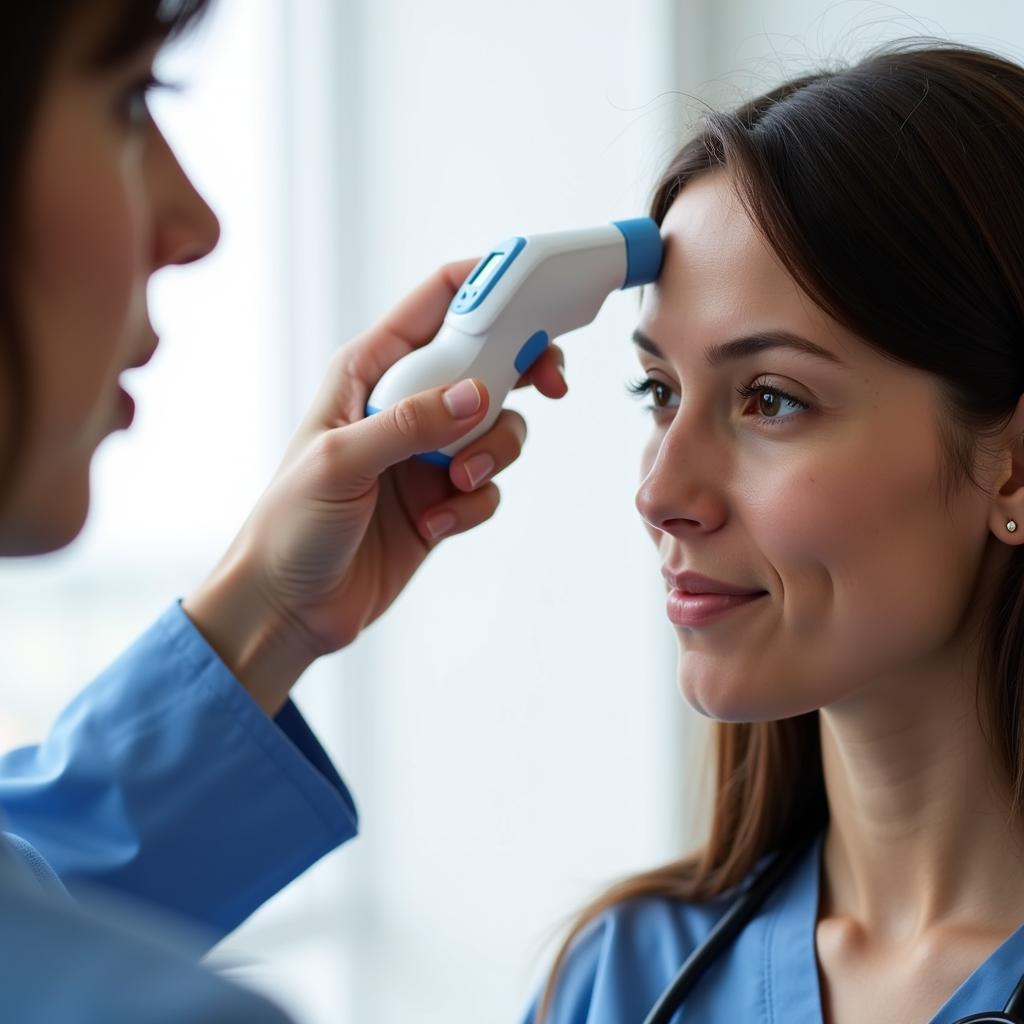Point of care tools are transforming healthcare, empowering nurse practitioners (NPs) to deliver more efficient and effective patient care. These tools provide immediate access to critical information and diagnostic capabilities right at the patient’s bedside, streamlining workflows and improving decision-making. This article explores the essential Point Of Care Tools Used By Nurse Practitioners and their impact on modern healthcare.
Essential Point of Care Tools for NPs: Enhancing Patient Care
Point of care (POC) tools are devices and technologies that allow NPs to perform diagnostic testing and gather patient information directly at the point of care, whether that’s in a hospital room, clinic, or even a patient’s home. These tools provide immediate results, facilitating quicker diagnoses and treatment decisions.
 Point of Care Tools for Nurse Practitioners
Point of Care Tools for Nurse Practitioners
Blood Glucose Meters: Monitoring Diabetes at the Point of Care
Blood glucose meters are indispensable tools for NPs managing patients with diabetes. These portable devices provide rapid blood glucose readings, enabling immediate adjustments to insulin dosages and dietary recommendations. This immediate feedback empowers patients to better manage their condition and reduces the risk of complications.
Portable Ultrasound Machines: Expanding Diagnostic Capabilities
Portable ultrasound machines are becoming increasingly common in NP practice, offering real-time visualization of internal organs and structures. They aid in diagnosing a wide range of conditions, from abdominal pain to musculoskeletal injuries, reducing the need for referrals and expediting treatment.
Handheld Spirometers: Assessing Respiratory Function
Handheld spirometers measure lung function, a crucial diagnostic tool for NPs managing patients with respiratory conditions like asthma and COPD. These devices assess lung capacity and airflow, aiding in diagnosis, treatment monitoring, and evaluating the effectiveness of interventions.
Digital Thermometers: Accurate Temperature Measurement
While seemingly simple, digital thermometers remain a fundamental point of care tool, providing quick and accurate temperature readings. Early detection of fever is critical in identifying and managing infections. Digital thermometers are essential in any clinical setting.
Impact of Point of Care Tools on Healthcare
Point of care tools have significantly improved healthcare delivery in several ways.
- Improved Patient Outcomes: Faster diagnosis and treatment lead to better patient outcomes, especially in time-sensitive situations.
- Increased Efficiency: POC tools streamline workflows, reducing waiting times and improving the efficiency of patient care.
- Enhanced Patient Satisfaction: Patients appreciate the convenience and speed of on-site testing and immediate results.
- Cost-Effectiveness: By reducing the need for referrals and repeat visits, point of care tools can contribute to cost savings.
 Digital Thermometer Use in Point of Care
Digital Thermometer Use in Point of Care
“Point of care tools are essential for modern nurse practitioners. They allow us to provide more comprehensive and efficient care, ultimately leading to better patient outcomes.” – Dr. Emily Carter, DNP, FNP-BC
“The ability to diagnose and initiate treatment immediately at the point of care empowers both the NP and the patient.” – Dr. Michael Davis, DNP, APRN
“The advancements in point of care technology have revolutionized how we practice, giving us tools that were previously only available in specialized settings.” – Dr. Sarah Lee, MSN, APRN, FNP-C
Conclusion: The Future of Point of Care Tools for Nurse Practitioners
Point of care tools are integral to modern nursing practice. These tools empower NPs to provide timely, efficient, and effective care, directly impacting patient outcomes and shaping the future of healthcare delivery. As technology continues to advance, point of care tools will undoubtedly play an even greater role in enhancing patient care.
FAQ
- What are the benefits of using point of care tools?
- What are some common examples of point of care tools?
- How do point of care tools improve patient outcomes?
- Are there any limitations to point of care testing?
- What is the future of point of care diagnostics?
- How has the use of point of care tools impacted the role of nurse practitioners?
- Where can I learn more about point of care testing?
When you need assistance, please contact us via WhatsApp: +1(641)206-8880, Email: [email protected] or visit us at 910 Cedar Lane, Chicago, IL 60605, USA. We have a 24/7 customer support team.

Leave a Reply